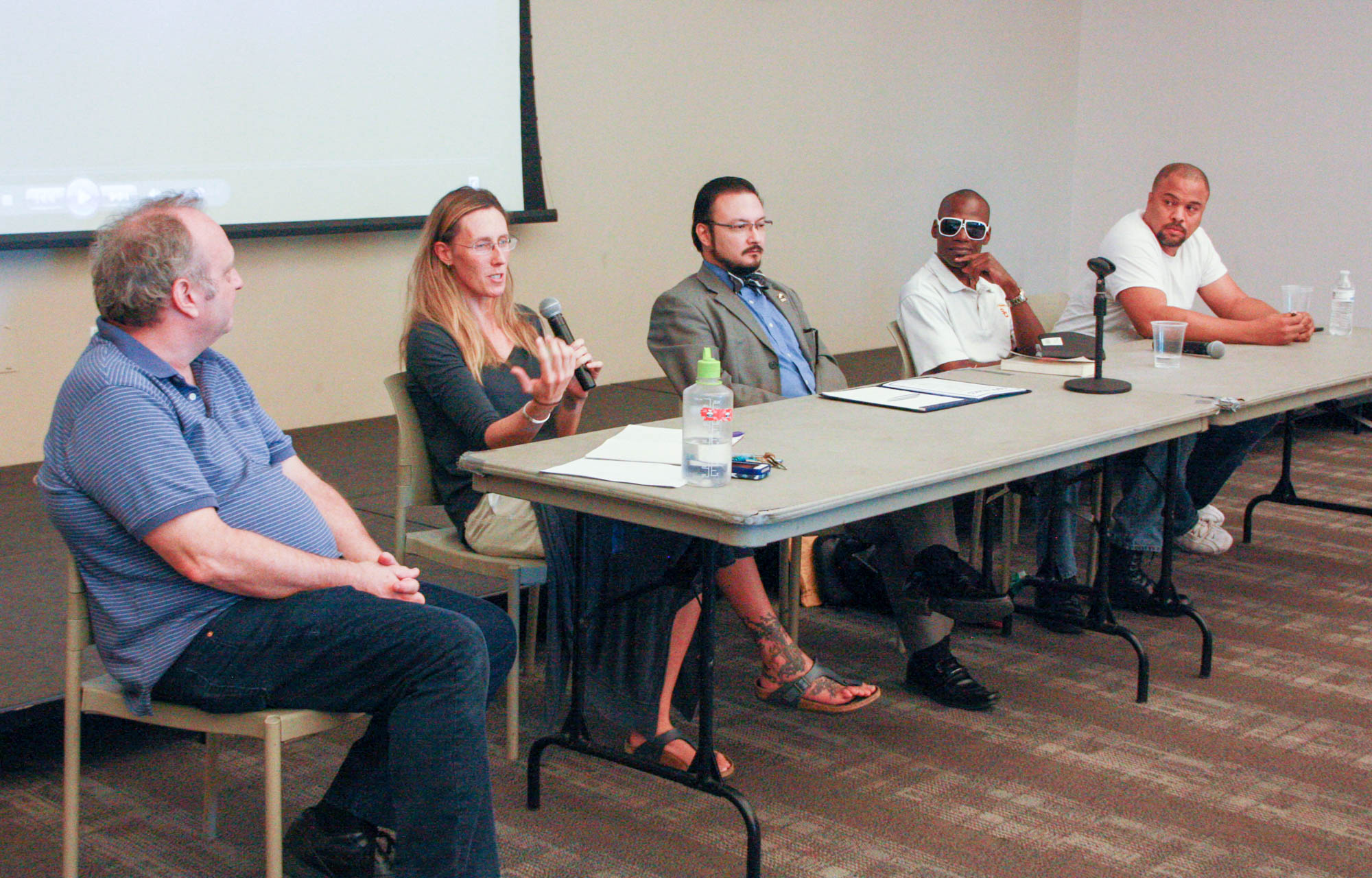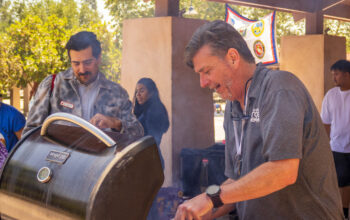
Who reports the reporters? The Pierce College Film Club explored that question in the Great Hall on Monday Oct. 23 with their first film screening of the fall semester.
This semester’s theme is “Journalism: Ethics or Profit?” Day one of the series presented the 1976 political drama “All the President’s Men” with a panel discussion that followed. Panelists included philosophy instructor Cara Gillis, instructor of journalism Richard Favela and two Film Club members.
The remaining days of the Film Series will screen “Nightcrawler” and “Spotlight”. Day two of the Film series will be on Wed, Nov 9, from 7-10 p.m., and day three will be on Thurs, Nov 30, from 2-5 p.m. Both will be in the Great Hall.
The film “All the President’s Men” focused on Bob Woodward and Carl Bernstein, two journalists from The Washington Post who investigated, and reported findings that uncovered the identities of people involved in the Watergate Scandal that took place during Nixon’s presidential term.
Film Club Advisor Ken Windrum said he thinks the event was great, and he enjoyed the panel.
“I thought the turnout was good, but I really enjoyed the event,” Windrum said. “The panel was wonderful. The two professors were great, and the two Film Club people were great. And each of them had something interesting and original to say that actually made me think about the movie in a different way.”
Windrum said he was impressed by the performance of the panelists.
“I hardly spoke at all on the panel today, which to me is a great success,” Windrum said.
Joan Hahn is taking a film class and said it’s been years since she saw the original movie when it first came out.
“I thought the movie held up very well,” Hahn said. “I was very intrigued. Even though I knew what was happening, the way it was done caught my interest, and I watched it progress with more knowledge than I had the first time.”
Hahn said the event exceeded her expectations, and she enjoyed the interchange of ideas.
“We have young people that are interested in what’s going on in the world, which is contrary to the belief that millennials walk around being superficial,” Hahn said. “This gave me a better view of people with brains.”
Virginia Gaglianone attended the series and said she watched the movie 15 years ago.
“I love it. I love the fact that I could watch the movie again,” Gaglianone said. “I think this is valuable now-a-days when people don’t read the paper and don’t get informed, and we get easily manipulated by the government. It’s a good refresher for the students to know how reporting is, and how important the role of reporters are for democracy.”
Windrum said delayed gratification is no longer valued in journalism.
“I don’t know if people are as careful in reading long stories. I mean, Woodward and Bernstein’s stories were long stories,” Windrum said. “People want that quick zap. This took two years.”
Windrum said reporting has changed through the years.
“That kind of reporting is about delaying gratification, and doing the groundwork. As you saw them go through phone books, literally going through Minnesota phone books,” Windrum said. “Stuff like that no one would have to do today. I don’t think we are patient anymore.”
Favela said being mindful of ethics is important when reporting.
“We have to be mindful of following our own ethics,” Favela said. “So we don’t fall by the wayside by presenting unsubstantiated claims, unsubstantiated information and non-confirmed information. We’re not putting in as much hard work as they were like in the movie. Having to look at names in telephone books, picking up the telephone or physically going to an individual to conduct an interview, and since we are not doing that hard work, obtaining that information, there seems to be a disconnect with the respect for the information.”
Student Marian Lobl said she heard about the Film Series through the Encore program. She said she lived through the Watergate Scandal, and said the movie held up to her standards.
“It was very interesting to see it today, especially in light of what’s going on today. To see a movie from the mid-70’s, it feels so relevant today with the dishonesty in the government,” Lobl said.
Film Club member Mareo Lawson said this is the first time he is discussing a film on a panel. He said the importance of journalistic ethics are more complex in today’s society.
“When it comes to journalistic ethics, I think it is so important that we, as students, understand the true nature of what’s out there,” Lawson said. “If we’re not facing the truth, we are just lying to ourselves.”



